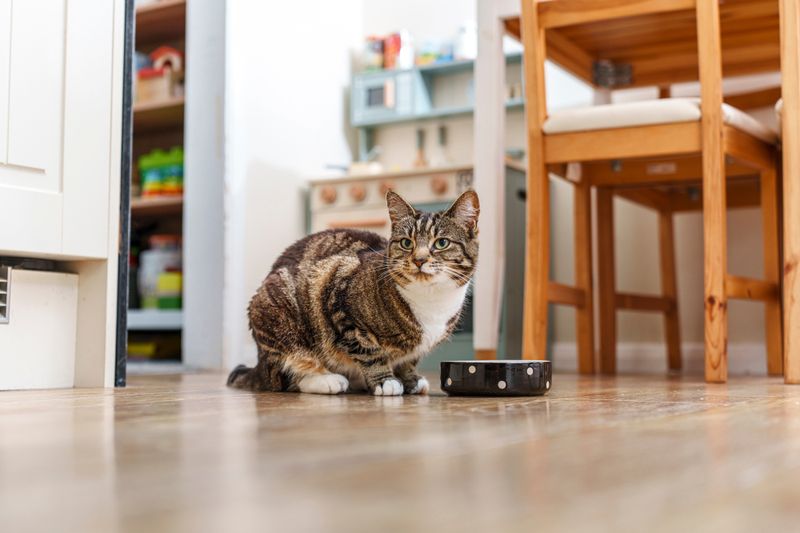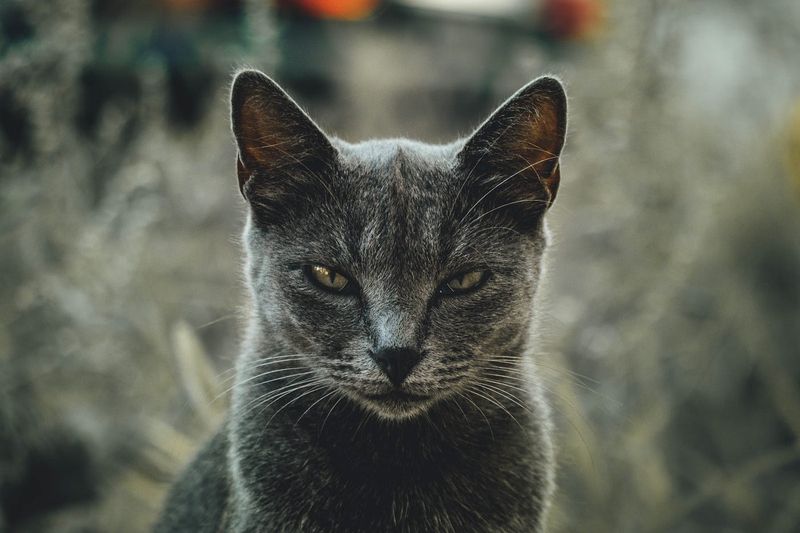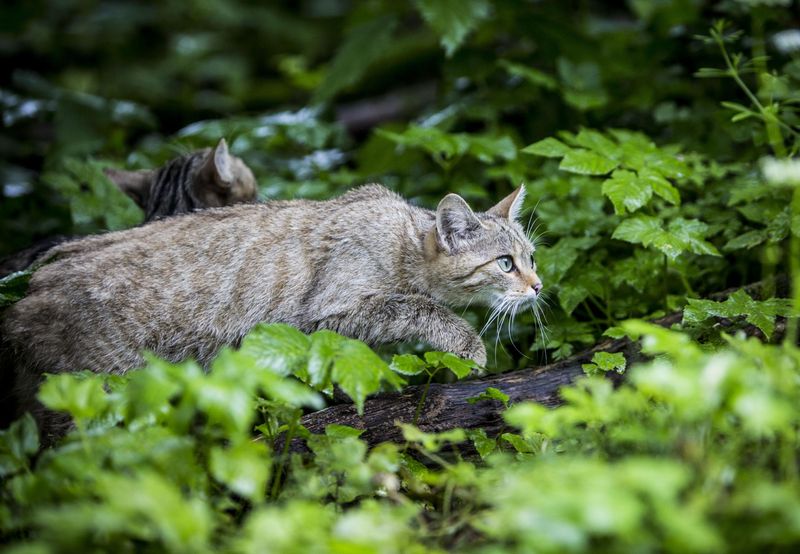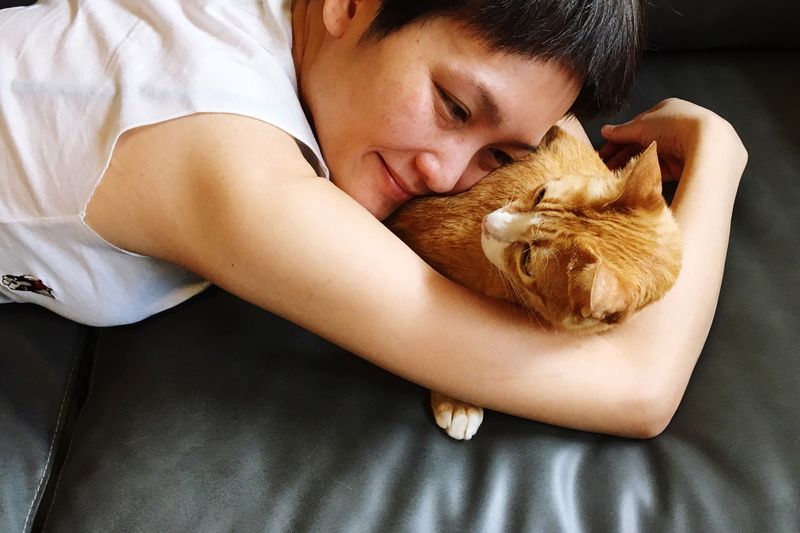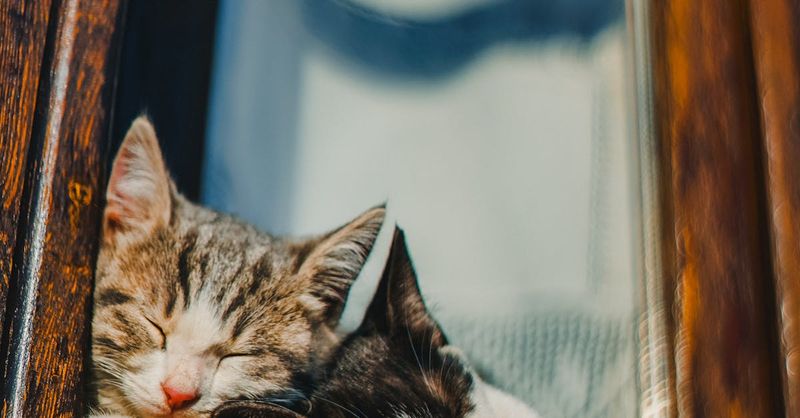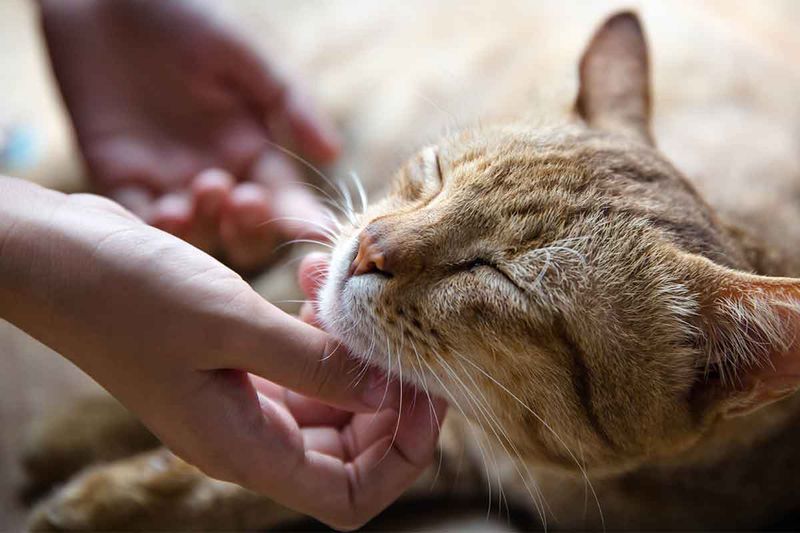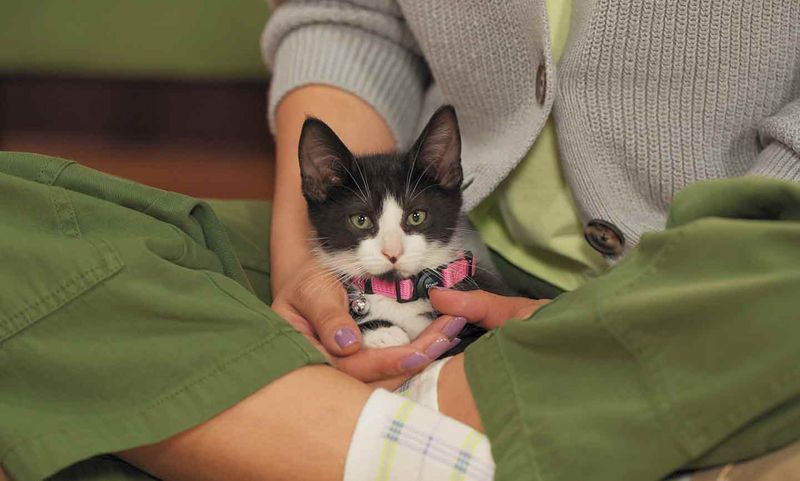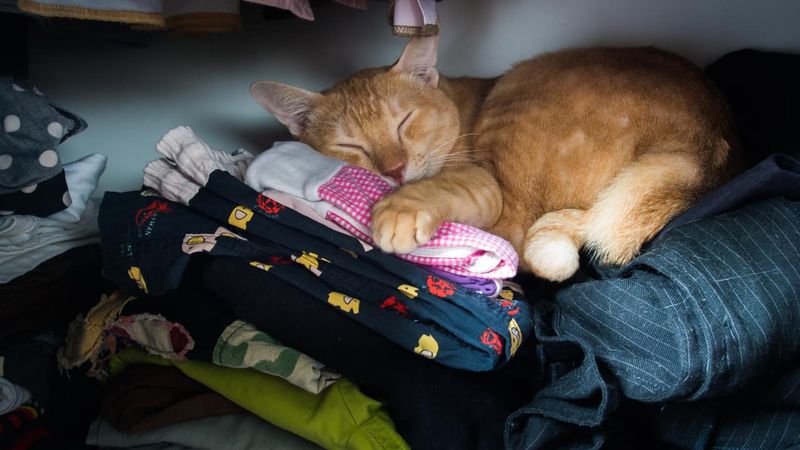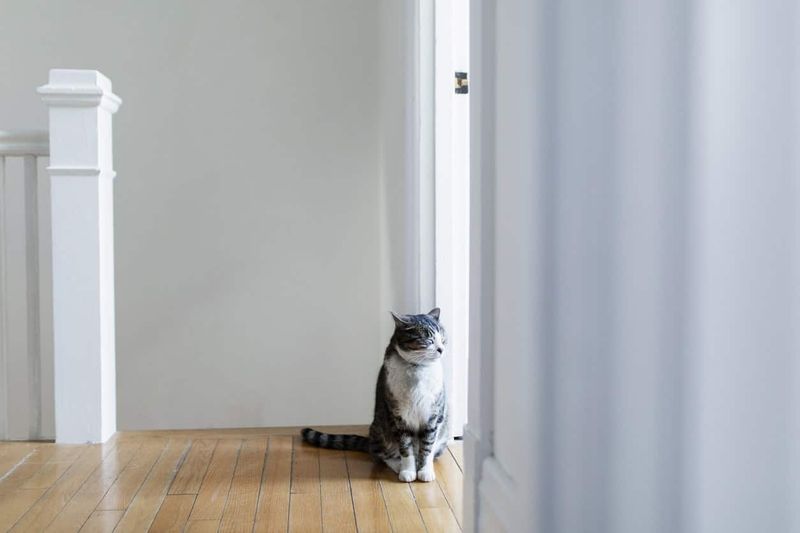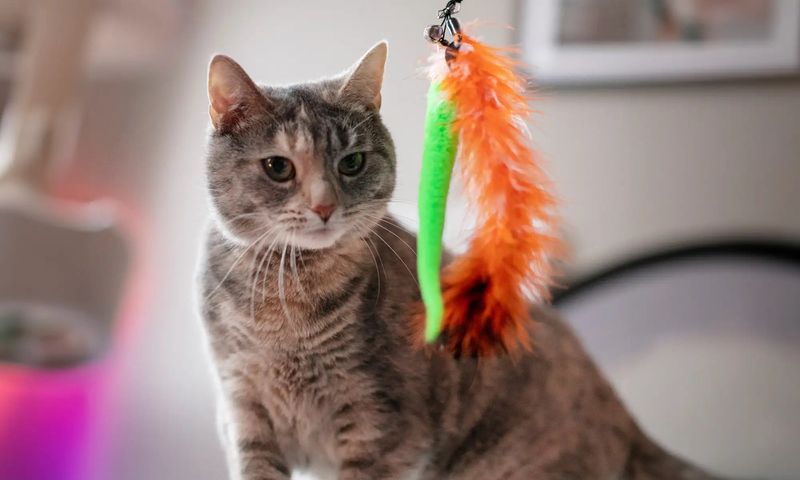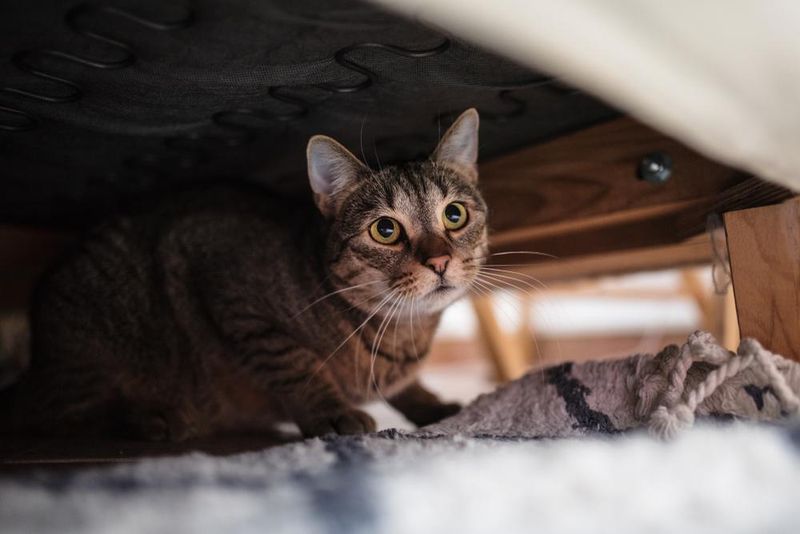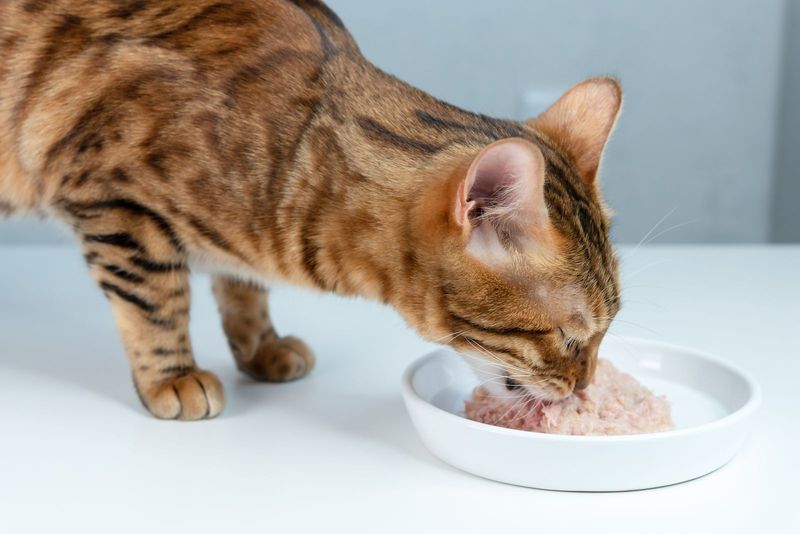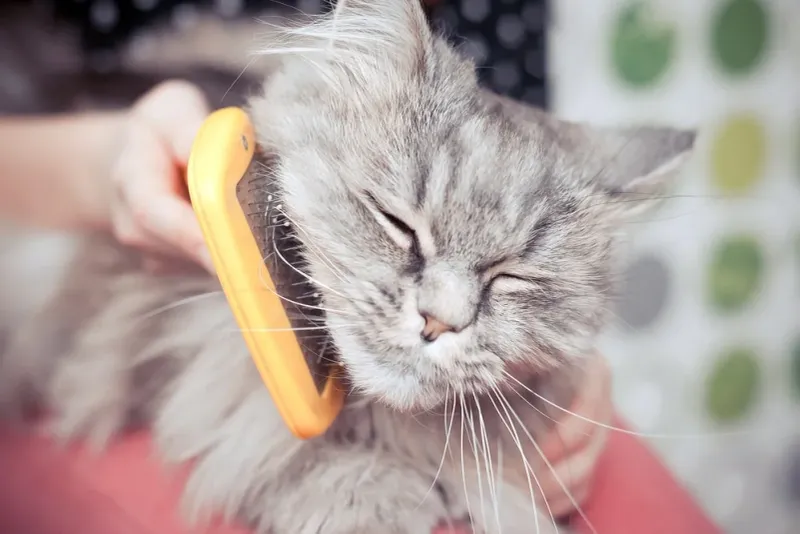📖 Table of Content:
- 1. Where Their Food Comes From
- 2. People Who Have Wronged Them
- 3. Their Territory Boundaries
- 4. The Person Who Rescued Them
- 5. The Sound of Your Voice
- 6. Their Favorite Napping Spots
- 7. The Feeling of Being Respected
- 8. Their First Home Environment
- 9. The Scent of Their Favorite Human
- 10. Routines and Daily Schedules
- 11. How You Play With Them
- 12. The Tone You Use With Them
- 13. Past Traumatic Experiences
- 14. People Who Give Them Special Treats
- 15. The Gentle Touch of Grooming
Cats often appear aloof, yet beneath that calm exterior lies a sharp mind constantly observing its surroundings. Their memory is especially keen when it comes to things that impact their daily lives. This quiet attentiveness helps them navigate their environment with confidence and caution.
These mysterious creatures don’t forget important details easily, from favorite resting spots to trusted humans. Their ability to recall meaningful experiences shapes how they interact with people and other animals. Recognizing this can deepen the connection between cats and those who care for them.
Memories influence a cat’s comfort, trust, and affection over time. By understanding what stays with them, it becomes possible to foster a more harmonious and loving relationship. Paying attention to these mental notes helps create lasting bonds that enrich both cat and human lives.
1. Where Their Food Comes From
Food memories are powerfully encoded in feline brains. Your cat knows exactly which cabinet holds their treats and which family member is most likely to provide extra snacks.
Cats can tell time with surprising accuracy when it relates to feeding schedules. They’ll appear in the kitchen minutes before their regular mealtime, demonstrating their remarkable food-related memory abilities.
To become their favorite human, maintain a consistent feeding schedule. Cats appreciate reliability and will associate you with positive feelings when you’re the dependable provider of their favorite meals.
2. People Who Have Wronged Them
Stepped on their tail once? Took them to the vet last month? Cats have exceptional memories for perceived slights and betrayals. They’ll remember the person who caused them discomfort long after the incident.
Unlike dogs, who seem quick to forgive, cats maintain a mental record of negative experiences. This evolutionary trait helped wild cats identify and avoid potential threats in their environment.
Earn forgiveness by respecting their space after an unfortunate incident. Approach them on their terms, speak softly, and offer treats as peace offerings. Patience is key—cats forgive on their own timeline.
3. Their Territory Boundaries
Cats create detailed mental maps of their domains, remembering every corner, hiding spot, and escape route. This spatial memory helps them navigate with confidence and defend their territory effectively.
Even indoor cats patrol their territory regularly, refreshing their mental maps and checking for changes. They’re especially alert to new furniture, moved objects, or unfamiliar scents that might indicate an intruder.
Help your cat feel secure by avoiding frequent furniture rearrangements. When changes are necessary, allow them time to reinvestigate and reclaim their territory through scent marking and exploration.
4. The Person Who Rescued Them
Cats never forget the human who saved them from danger or brought them to safety. This emotional memory forms an unbreakable bond that lasts throughout their lives.
The scent, voice, and gentle touch of their rescuer become permanently etched in their brain. Many cat owners report their rescued felines showing extraordinary loyalty and affection, specifically to the family member who first brought them home.
Want to be remembered fondly? If you’re adopting a cat, be the one to personally bring them into your home and provide their first meal in their new environment.
5. The Sound of Your Voice
Your unique vocal signature is permanently stored in your cat’s memory. Cats recognize their owners’ voices even when they can’t see them, responding differently to familiar voices than to strangers’.
Research shows cats process human speech differently than other sounds, focusing particularly on the familiar voices of their favorite people. Many cats come running when called by their preferred human, but conveniently “ignore” calls from others.
Talk to your cat regularly in a gentle, consistent tone. They appreciate the communication and will associate your voice with comfort and security.
6. Their Favorite Napping Spots
With sharp recall, cats consistently return to the soft, quiet spots where they’ve felt most at ease. Their napping habits follow a predictable pattern across trusted corners of the home.
These chosen areas usually offer strategic advantages—warmth, elevation for safety, or good visibility of their surroundings. Your cat’s memory for these spots is so strong they’ll often return to them even after long absences.
Create special resting places near where you spend time. A cat bed on your desk or a soft blanket near your favorite chair helps associate you with comfort and security.
7. The Feeling of Being Respected
Those who understand and respect a cat’s limits leave a lasting impression on their memory. Cats recall gentle, attentive interactions with clarity.
When you honor a cat’s signals for space or allow them to approach on their terms, you’re creating positive memories. These respectful interactions build trust that cats carry with them for life.
Let your cat initiate contact whenever possible. When they walk away, give them space. This consistent respect for their autonomy will earn you a permanent place in their good graces.
8. Their First Home Environment
The sights, sounds, and smells of a cat’s first home environment leave lasting impressions. Cats who grew up hearing vacuum cleaners will be less frightened by them later in life. Those raised with dogs often remain comfortable around canines forever.
Early socialization experiences shape a cat’s lifelong comfort levels and behavioral responses. Kittens exposed to gentle handling by humans during their critical development period (2-7 weeks) typically grow into more sociable adult cats.
For newly adopted cats, recreate familiar elements from their previous home when possible. This thoughtful transition helps them adjust with greater ease and confidence.
9. The Scent of Their Favorite Human
Your unique scent profile is permanently cataloged in your cat’s olfactory memory. Cats have approximately 200 million odor sensors compared to our mere 5 million, making scent their most powerful memory trigger.
When you’re away, you might notice your cat sleeping on your clothes or bedding. This isn’t just for comfort—they’re surrounding themselves with your familiar scent, which provides security and connection.
Leave a recently worn (but clean) t-shirt in your cat’s favorite spot when you’ll be gone for extended periods. This scent memory will help them feel connected to you even in your absence.
10. Routines and Daily Schedules
Cats are creatures of habit with remarkable memories for daily patterns. They remember exactly when you normally wake up, leave for work, return home, and prepare for bed.
This time-sense helps cats anticipate interactions and prepare accordingly. Many cat owners report their pets waiting by the door minutes before they typically arrive home, demonstrating this powerful memory for routines.
Maintain consistent daily schedules when possible. Predictable routines help cats feel secure and in control of their environment, reducing stress and strengthening their bond with you.
11. How You Play With Them
Favorite playtime activities and the humans who participate become deeply ingrained in a cat’s memory. The excitement of a moving toy or feather wand creates joyful bonds.
Play sessions activate reward centers in a cat’s brain, linking you directly to feelings of happiness and satisfaction. Cats who engage in regular interactive play with specific family members often show stronger bonds with those individuals.
Schedule short, consistent play sessions daily. Even five minutes of engaged play can create lasting positive memories that strengthen your relationship with your feline friend.
12. The Tone You Use With Them
The way people talk to cats—whether with sharp commands or gentle words—stays with them long after the moment. Their memories hold strong impressions of these emotional tones.
Studies show cats respond more positively to high-pitched, friendly voices similar to how we speak to human babies. They remember and prefer humans who consistently use this “cat-directed speech” when interacting with them.
Speak to your cat in gentle, elevated tones. Even when they’ve misbehaved, maintaining a calm voice helps preserve your positive relationship and keeps you in their good graces.
13. Past Traumatic Experiences
Fearful or unpleasant moments leave lasting impressions on a cat’s mind. Even years later, the sight of a carrier can trigger avoidance if it’s linked to a traumatic car trip.
These trauma memories serve a protective function, helping cats avoid potentially dangerous situations. Unfortunately, this can sometimes lead to challenging behaviors that puzzle owners who aren’t aware of their pet’s history.
For cats with trauma histories, create new positive associations through patience and rewards. Never force interactions with feared objects or situations—instead, allow them to approach at their own pace with plenty of encouragement.
14. People Who Give Them Special Treats
The memory of tasty treats lingers long in a cat’s mind, helping them remember who provides the best rewards. These associations create powerful bonds.
This food-giver memory has evolutionary roots—wild cats needed to remember reliable food sources for survival. Modern house cats apply this same memory power to identifying the most generous humans in their environment.
Become the designated treat provider in your household. Use high-value treats sparingly and at specific times, like when you return home, to create positive associations with your presence.
15. The Gentle Touch of Grooming
Memories of careful, affectionate grooming stay with cats for a long time. Respectful brushing fosters deep bonds and trust.
Grooming is a natural social behavior for cats. When you brush your cat appropriately, you’re participating in an activity that mimics how cats show affection to each other in the wild.
Learn your cat’s specific grooming preferences—some enjoy belly brushing while others only tolerate back and shoulder grooming. Regular sessions with their preferred brush type will associate you with comfort and care in their memory.

